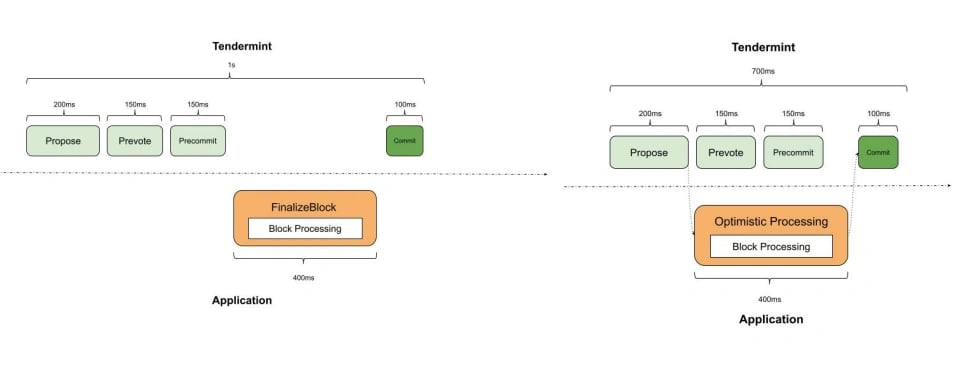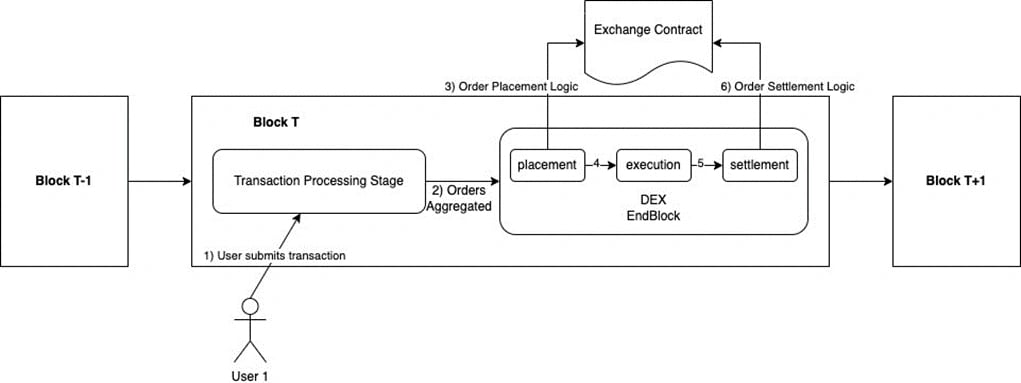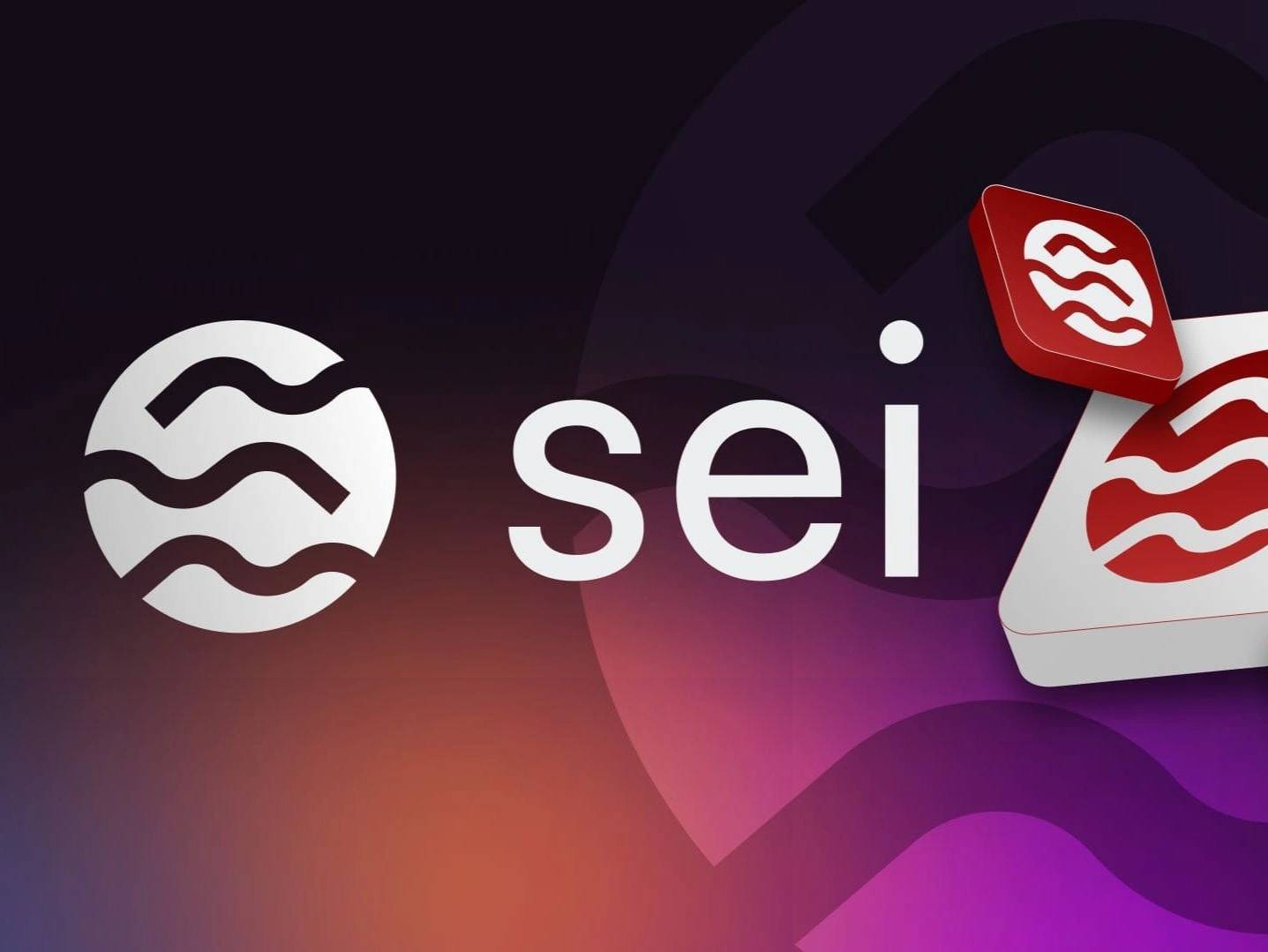Sei
Sei 是一种 Layer 1,它结合了 Ethereum 和 Solana 的优势:以太坊的主导开发标准与 Solana 的性能。Sei 的 V2 更新使其成为第一个并行化的 EVM。作为以太坊生态系统的一种新的扩展方法。Sei 于 2022 年推出其 主网,并拥有一个不断增长的生态系统,其中包含来自以太坊、Solana、Polygon、Arbitrum 等的关键团队。该团队得到了 Multicoin、Jump、Coinbase Ventures 等的支持。Jayendra Jog 和 Jeff Feng 是 Sei 的联合创始人。[1][2]
概述
Sei 于 2022 年推出,其核心论点是:区块链的基本用例是交换数字资产的能力。因此,如何扩展 交易所的问题对于释放 Web3 采用的下一个增长阶段至关重要。Sei 是一个开源的、通用的 Layer 1 区块链,专为交易而构建,在堆栈的每个级别都进行了优化,以提供用于交换数字资产的最佳基础设施。[1][3]
Sei 于 2023 年 8 月 16 日推出了其公共主网,并于 2024 年 2 月 13 日推出了其公共开发网。[10][11]
Sei V2 EVM
Sei v2 引入了各种新功能,例如高性能并行化 EVM。它可以产生一条链,结合 Solana 和以太坊的最佳部分;改善用户体验并为开发人员解锁新的设计空间,与 Ethereum 生态系统中的当前产品相比,吞吐量有所提高。
- 互操作 EVM:这允许以太坊生态系统中现有的开发人员将其应用程序、工具和基础设施部署到 Sei,而无需进行任何更改,同时受益于 Sei 提供的 100 倍性能提升。Sei 仍将支持 Cosmwasm,作为同一区块链上的第二个执行环境。
- 乐观并行化:此功能允许开发人员为其应用程序解锁并行处理,而无需额外的工作。这类似于 Solana 扩展其吞吐量的方式;以太坊开发人员现在也可以首次构建并行化工作流程。
- SeiDB:此重大升级使 Sei 能够处理更高的数据存储、读取和写入速率,这对于高性能区块链变得非常重要。这不仅促进了开发人员,特别是节点运营商的巨大性能改进,而且还意味着快速状态同步,并通过减少状态膨胀来降低硬件要求。
- Twin Turbo 共识:此功能使 Sei 能够以 390 毫秒的速度达到任何区块链的最快最终确定时间,从而为应用程序解锁类似 web2 的体验。
- 并行堆栈:它作为一个强大的开源框架出现,旨在构建利用并行处理能力的 Layer 2 和 Rollup,这种架构创新专为显着增强以太坊生态系统而量身定制,针对 Layer 2 区块链当前面临的性能瓶颈。[1]
2025 SIP-3 更新
在社区治理初步批准 SIP-3 后,Sei 已开始过渡到仅 EVM 架构。该提案概述了弃用 CosmWasm 和原生 Cosmos 交易,转而采用简化的、基于 Ethereum Virtual Machine 的设计。此更改旨在简化开发人员体验,并增强 Sei 与更广泛的 EVM 生态系统的对齐,同时保持其高性能特性。
在社区反馈期间确定的关键考虑因素包括对现有 CosmWasm 项目的迁移支持、资产转移机制、EVM 预编译的更新技术规范、RPC 和索引服务的基础设施要求以及围绕资产影响的更清晰的沟通。值得注意的是,只有 CosmWasm 资产才需要迁移;EVM 资产将不受影响。过渡将分多个阶段进行,并提供额外的检查点来指导实施。[13]
主要特点
Sei 包含几个基本功能来增强其功能。安全性是关键,Sei 与全球机构和验证者合作,以确保数字资产交易的强大安全措施。其架构优先考虑可扩展性,以满足对 去中心化应用程序 (dApp) 不断增长的需求,并无缝支持主要的全球应用程序。该平台的适应性使其能够随着行业趋势的发展而发展,社区治理指导创新。强调速度以实现快速交易,同时保持安全性和稳定性。Sei 还通过利用权益证明共识来最大限度地减少其环境影响,从而专注于生态友好性,并通过 Sei 基金会的碳中和计划为更可持续的数字资产行业做出贡献。[4]
技术
Twin-Turbo 共识
Sei 采用 Twin-Turbo 共识机制来提高交易效率。此方法优化了交易传播过程,在网络中传播用户发起的交易。验证者将这些交易集成到其本地内存池中,区块提议者创建包含唯一交易标识符和完整区块引用的区块提议。这种方法减少了延迟,加快了验证者等待时间,并有助于 Sei 的整体运营效率。[5]
乐观区块处理
Sei 引入了乐观区块处理,这是一项独特的特性,可提高交易效率。与在预提交步骤之前推迟交易处理的传统方法不同,Sei 在收到区块提议后同时处理交易。这会在成功接受区块后生成提交到缓存中的候选状态。这种并行过程减少了延迟并加速了数据处理,从而提高了 Sei 的区块处理效率。[5]

并行化
并行化是 Sei 区块处理优化的基本策略。在 DeliverTx 阶段,交易并行处理,从而提高交易吞吐量。Sei 还实施基于市场的并行化,允许通过其原生订单匹配引擎同时处理独立的中央限价订单簿 (CLOB) 订单。这种方法通过支持并行处理不影响区块内同一市场的订单来提高交易效率。Sei 量身定制的并行化方法可确保有效管理各种交易类型。[5][7]
预言机
Sei 具有 Pyth 和原生 预言机 模块,以支持资产汇率定价,供其他模块和合约使用。在为网络进行验证时,预计并要求参与作为预言机,以确保资产的可靠和准确的定价。[5][8]
原生订单匹配引擎
原生订单匹配引擎是构建在 Sei 区块链 上的 去中心化交易所 的工具。该引擎支持在 Sei 生态系统中创建和管理中央限价订单簿 (CLOB)。通过在链级别维护订单簿,去中心化交易所可以高效地部署和管理市场,从而为用户提供增强的交易体验。[5]

2024 年 4 月 4 日,致力于 Sei 生态系统发展的非营利组织 Sei 基金会推出了 Sei Creator Fund,这是一项 1000 万美元的赠款基金,用于创建新项目和发展 Sei 上现有的 NFT 和社交项目。[12]
该基金的部署是为了表彰 Sei 上的社区发展,旨在帮助扩展 Sei 的 NFT 和社交生态系统。[10]
Sei Creator Fund 旨在为 NFT 和社交领域的创作者和建设者提供支持:收藏品、应用程序、基础设施、内容创作,甚至现实生活 (IRL) 活动。
该基金的受益者包括为 Sei NFT 生态系统做出贡献的各种项目和团队。Sei Creator Fund 旨在支持处于不同发展阶段的各种项目和创作者。[10]
社区定向资助
为了在 Sei 生态系统中加强去中心化,第二阶段的赠款涉及社区的投票。本节将通过与 Gitcoin 的合作来促进,Gitcoin 是一个以致力于资助开源开发和公共产品而闻名的平台。通过这种方式,Sei 社区可以决定如何分配赠款,从而增强生态系统。[10]
